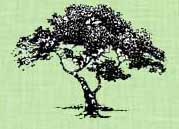Home
About the Committee
The Atherton Tree Committee was formed in 1989 to perpetuate a healthy urban forest and to guide landscaping of public lands. The goals of the Committee are to educate residents on the proper care and selection of trees, to reduce the loss of our existing trees through better resident tree care, and to plant trees on public and private land where trees have been lost to old age or disease. The Committee has assisted residents with replacement criteria and species selection. We have assisted the Town with the implementation of a reforestation plan for trees lost to Dutch elm disease. Thanks to the work of the committee, Atherton is designated a Tree City and celebrates Arbor Day every year. See the town web site for the Municipal Code and New Ordinances affecting trees. The photo at right is of a large live oak in the Town's Holbrook-Palmer Park.
Save Your Oaks - Watch the Watering
Decline and early death of our oaks is often a result of too much irrigation. Damage usually takes years to become evident, and by the time the tree shows signs of decline it is too late to correct. Our native oaks receive no summer water in their natural environment. Watering within the dripline (the line below the outer edge of the branches) during the warm summer months will eventually lead to oak root fungus. The area within the dripline of a large established oak should be left undisturbed. The natural leaf litter is the best mulch for oak trees as there is a very unique micro-climate under oaks that allows them to survive without summer water. The organic leaf mulch conserves water, provides nutrients as it decays, improves soil structure, decreases soil pH and reduces soil temperature extremes. Irrigation for lawns, groundcovers or other ornamental vegetation should be avoided or, at the very least, kept well away from the trunk. The idea that young or newly planted oaks can adapt to irrigation is not correct.
There has been a trend to use river rock under the oak trees to create a dry zone, but arborists do not recommend the use of these rocks under oaks as they trap moisture and warm the soil – conditions favorable for fungus to flourish. And they impede oxygen and gas exchange to the roots.
Landscape plants in general suffer more from moisture-related problems than from any other cause. Water is vital to our plants, but excessive water is often responsible for their decline and death. When a new landscape is installed, watering frequency and length of watering times are high in order to get the new plants established, especially if planted during the summer months. Once the plants are established, the watering times need to be adjusted to meet the watering needs of each landscape zone. Check to see if you have excessive run-off from your sprinklers – another sign that you may be using more water than is necessary. Lawns do require water, but if you can’t walk on your lawn without going “squish-squish” you are probably over watering.
Feel the soil to estimate the soil moisture. Collect a soil sample representative of the site with a soil probe or shovel. Roll or squeeze a small sample of soil into a ball. If the soil will not mold into a ball, it is too dry to supply adequate moisture to plants. If the ball formed will not crumble when rubbed, the soil is too wet. If the soil can be molded into a ball, but will crumble when rubbed, the moisture is probably about right. Sprinkler systems can be redesigned or heads can be adjusted or changed to improve distribution, plant performance, and water conservation. Plus, you can save some money on your water bill.
